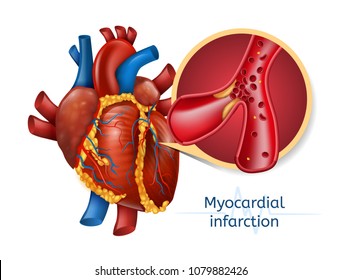A 52-year-old male suffered a myocardial infarction secondary to atherosclerosis and ischemia. Once oxygen returned to the damaged heart, reperfusion injury occurred as a result of:
Oxygenation of the cells
Free radical formation
Increased metabolic state
Lactic acid build-up
The Correct Answer is B
Choice A Reason:
Oxygenation of the cells is a necessary process during reperfusion, but it is not the direct cause of reperfusion injury. The injury occurs due to the sudden influx of oxygen, which leads to the formation of reactive oxygen species (ROS) or free radicals. These free radicals cause oxidative stress and damage to the myocardial cells.
Choice B Reason:
Free radical formation is the primary mechanism behind reperfusion injury. When blood flow is restored to the ischemic myocardium, the sudden reintroduction of oxygen leads to the production of free radicals. These free radicals cause significant oxidative damage to the cell membranes, proteins, and DNA, exacerbating the injury to the heart tissue.
Choice C Reason:
An increased metabolic state can occur during reperfusion as the cells attempt to recover from ischemia. However, it is not the direct cause of reperfusion injury. The primary issue is the oxidative stress caused by free radicals, not the metabolic changes themselves.
Choice D Reason:
Lactic acid build-up is a consequence of anaerobic metabolism during the ischemic period, not a cause of reperfusion injury. During ischemia, cells switch to anaerobic metabolism, leading to lactic acid accumulation. However, once oxygen is reintroduced, the focus shifts to the oxidative damage caused by free radicals rather than lactic acid.

Nursing Test Bank
Naxlex Comprehensive Predictor Exams
Related Questions
Correct Answer is B
Explanation
Choice A Reason:
Tertiary prevention involves measures taken to reduce the impact of an ongoing illness or injury that has lasting effects. This includes rehabilitation and efforts to prevent further complications or deterioration. Vaccination, however, is aimed at preventing the disease before it occurs, which does not align with the concept of tertiary prevention.
Choice B Reason:
Primary prevention refers to actions taken to prevent the onset of disease before it occurs. Vaccination is a classic example of primary prevention because it aims to protect individuals from contracting diseases by stimulating the immune system to recognize and fight specific pathogens. In this case, the meningococcal vaccine helps prevent meningitis, making it a primary preventive measure.
Choice C Reason:
Disease treatment involves managing and caring for a patient to combat a disease or condition. This includes interventions aimed at curing the disease, alleviating symptoms, or preventing complications. Vaccination does not fall under disease treatment because it is a preventive measure rather than a therapeutic one
Choice D Reason:
Secondary prevention focuses on early detection and prompt intervention to prevent the progression of a disease. This includes screening tests and early treatment of conditions to halt or slow their progression. Vaccination, however, is intended to prevent the disease from occurring in the first place, which is not the goal of secondary prevention.
Correct Answer is D
Explanation
Choice A Reason:
Administering the drug at intervals longer than the drug half-life is not typically recommended for medications with a narrow therapeutic range. These drugs require precise dosing to maintain therapeutic levels without reaching toxic levels. Extending the dosing interval could lead to subtherapeutic levels, reducing the drug’s effectiveness.
Choice B Reason:
Teaching the patient that maximum drug effects will occur within a short period is not specific to drugs with a narrow therapeutic range. While some medications may have rapid onset of action, the critical aspect of narrow therapeutic range drugs is maintaining consistent blood levels to avoid toxicity or subtherapeutic effects.
Choice C Reason:
Administering the medication intravenously is not a requirement for all drugs with a narrow therapeutic range. While IV administration can provide precise control over drug levels, many narrow therapeutic range drugs can be administered orally or through other routes. The key is monitoring and adjusting the dose based on blood levels.
Choice D Reason:
Ordering lab tests to check blood drug levels is essential for managing medications with a narrow therapeutic range. These drugs have a small margin between therapeutic and toxic doses, so regular monitoring of blood levels helps ensure the drug remains within the safe and effective range. This practice is known as therapeutic drug monitoring (TDM) and is crucial for drugs like warfarin, phenytoin, and digoxin.
Whether you are a student looking to ace your exams or a practicing nurse seeking to enhance your expertise , our nursing education contents will empower you with the confidence and competence to make a difference in the lives of patients and become a respected leader in the healthcare field.
Visit Naxlex, invest in your future and unlock endless possibilities with our unparalleled nursing education contents today
Report Wrong Answer on the Current Question
Do you disagree with the answer? If yes, what is your expected answer? Explain.
Kindly be descriptive with the issue you are facing.
